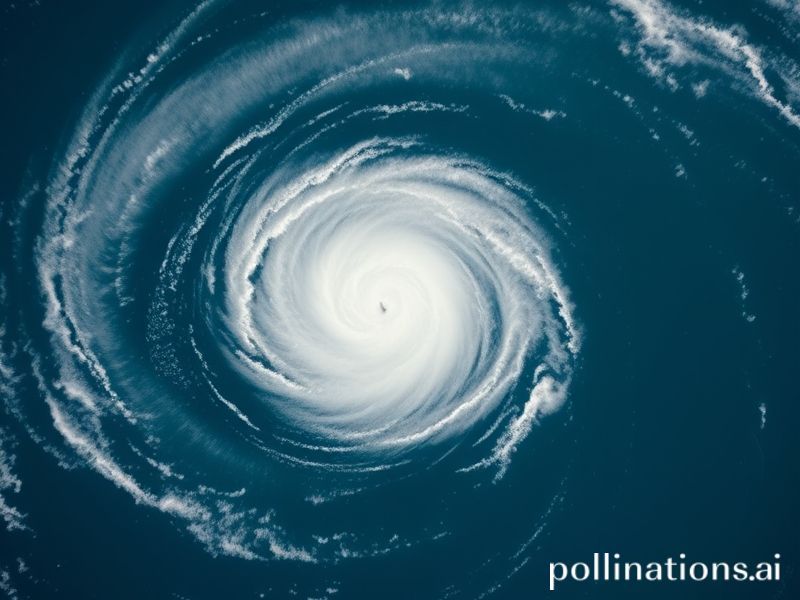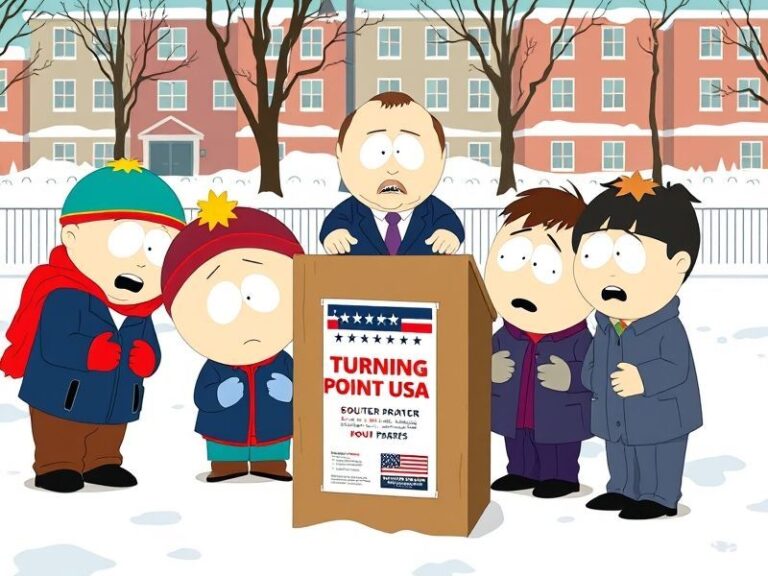Gabrielle Takes a Global Victory Lap: How One Storm Became the World’s Favorite New Anxiety
Tropical Storm Gabrielle Forecast: A Globe-Trotting Tempest in a Teapot
By our Special Correspondent in the Departures Lounge, Nursing a Warm Gin
Our story begins, as most modern catastrophes do, with a colorful blob on the U.S. National Hurricane Center’s website—an amorphous Rorschach test currently drifting east of the Leeward Islands. Forecasters call it “Gabrielle,” a name that sounds like the heroine of a 1990s telenovela rather than a swirling vortex of moist retribution. Still, the usual suspects have begun their ritual dance: Caribbean governments issue “preliminary watches,” cruise lines reroute floating cities the size of Liechtenstein, and European energy traders buy up Dutch natural-gas futures like they’re concert tickets. Somewhere in Brussels, an EU civil servant is drafting a memo titled “Meteorological Risk Contingency 2023-TSG-001,” because nothing calms a continent like a seventeen-word filename.
Farther afield, the implications are deliciously global. Brazil’s sugar traders—already punch-drunk from a year of Bolsonaro nostalgia and El Niño jitters—see Gabrielle as a potential back-door threat to the Gulf Stream’s mood, which could mean frost in Paraná and an even scarier frost in their profit margins. Meanwhile, insurers in London’s Lloyd’s building calculate “probable maximum loss” numbers that sound suspiciously like the GDP of a mid-sized African nation, then quietly raise premiums on Caribbean luxury resorts that cater to hedge-fund divorcées. The storm hasn’t even arrived, yet it has already generated more paperwork than the Treaty of Versailles.
Across the Pacific, Japanese shipping giants reroute container vessels through the Panama Canal, which is itself so drought-stricken that passage slots are now auctioned like NFTs. The knock-on effect is a traffic jam of floating cardboard castles outside Los Angeles, where TikTok influencers film “haul videos” while standing atop pallets of delayed merchandise—ironically, most of it weather-themed apparel. One viral clip shows a woman in a “Sunshine State” hoodie lamenting the rain in California; the algorithm, displaying its trademark empathy, serves her an ad for discounted hurricane insurance.
Back in the Atlantic, Gabrielle’s projected cone of uncertainty resembles a drunk tourist’s itinerary: tonight, Guadeloupe for rum; tomorrow, Bermuda for pastel shorts; by the weekend, possibly the Azores for melancholic fado and maritime disaster ballads. The European Centre for Medium-Range Weather Forecasts—whose supercomputers sound like artisanal coffee blends—suggests a 38 % chance of post-tropical transition somewhere near the Azores High, which is meteorological slang for “we’re as clueless as you, but with prettier graphics.”
Human nature, ever the reliable punchline, responds predictably. Florida’s governor pre-emptively declares a state of emergency for counties that haven’t seen rain since the Clinton administration, while hardware-store chains air ads for plywood at 3 a.m. as though insomnia and fear were a target demographic. The French overseas department of Guadeloupe orders citizens to stockpile three days’ worth of water, prompting locals to shrug and open another bottle of Château de la Banane. In Dakar, a Senegalese meteorologist tweets a satellite loop captioned “Gabrielle, or why I drink,” earning 50,000 likes and a job offer from a pan-African weather start-up whose funding comes from Luxembourgian climate guilt.
And so the world spins—literally, at 1,037 mph—while Gabrielle meanders across the ocean like a procrastinating novelist. Whether she fizzles into a soggy anticlimax or morphs into the season’s first respectable hurricane is, at this stage, less important than the spectacle she generates: a planet-wide demonstration that in the age of late capitalism, even the weather must multitask as entertainment, economic indicator, and existential prompt. By Friday, the storm will either be a footnote in the NHC’s archive or the lead item in a Munich Re quarterly report. Either way, the true casualty will be our attention span, already swirling down the same drain as last month’s forgotten cyclones.
Conclusion: Gabrielle reminds us that modern civilization has perfected the art of turning every gust of wind into a tradable commodity, a policy crisis, and a content opportunity. Somewhere, Gaia is updating her résumé; the rest of us refresh our feeds. Stay tuned—or don’t; the storm certainly won’t.







